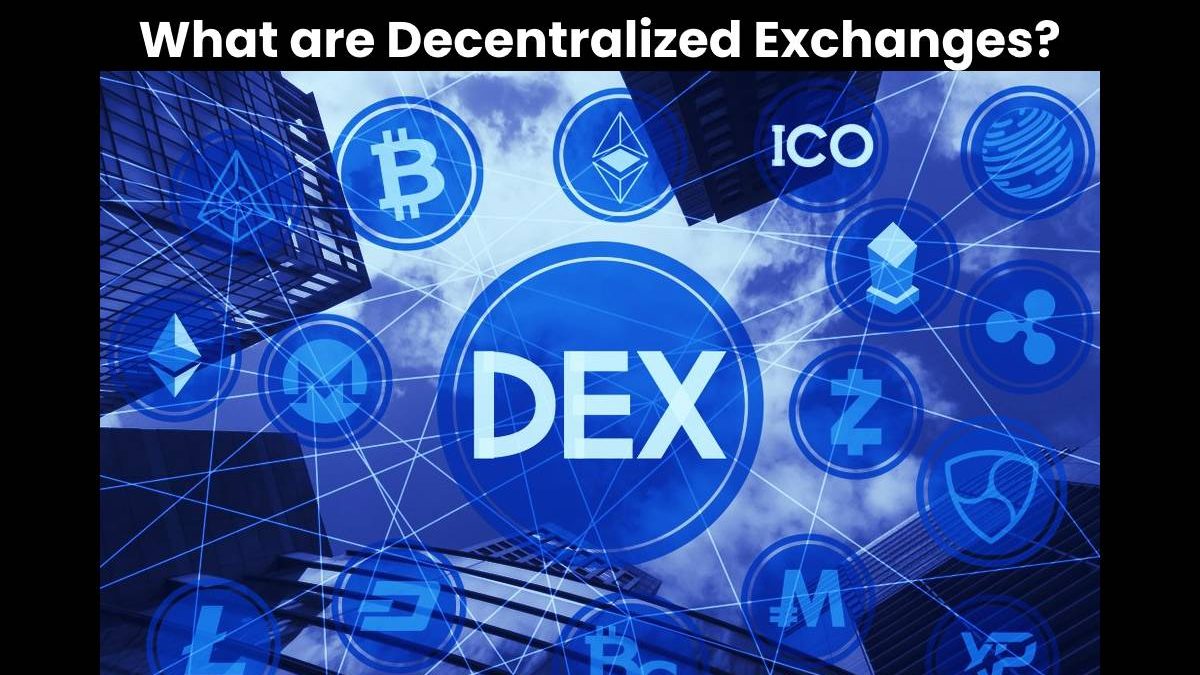Decentralized Exchanges
Before 2017, cryptocurrency wasn’t very popular and its adoption was a slow process. However, Bitcoin (the foremost cryptocurrency) had a major bull run in 2017 and it hit an all-time high of 20 thousand dollars in December. Fast forward to the economic lockdown in 2020 and the need for more decentralized means of payment, bitcoin started another bull run that resulted in an all-time high of 60 thousand dollars. This price volatility has drawn many people to cryptocurrency investment and trading such that scams and other cyber attacks became quite common. Centralized exchanges like Coinbase were put under strict supervision by regulatory bodies. This led to the rise of various decentralized exchanges and today, we want to take an in-depth look at them.
Table of Contents
What are decentralized exchanges?
Decentralized exchanges (also known as DEXs) are independent decentralized applications designed to allow crypto buyers to have complete authority over their funds and trade without giving up control to any custodian. In the case of centralized exchanges, you have to give up custody of your crypto assets before you are allowed to buy and sell crypto on the platform. Decentralized exchanges are completely peer-to-peer and they eliminate the need for any authority to approve or supervise your trade.
What are the types of decentralized exchanges?
On-chain order books
On-chain order books are regarded as completely decentralized exchanges. DEXs who utilize this design operates with network nodes that maintain records of all orders. Miners are also required to confirm every transaction per time.
Off-chain order books
Off-chain order books are regarded as semi-decentralized exchanges. The reason is that even though trades and transactions are carried out independently, the records of the transactions are hosted on a centralized entity. Off-chain order books use relays to help them manage their order books.
Automated market makers
Automated market markers became the rave of the crypto community in 2020. AMMs operate with smart contracts and they form liquidity pools that execute the trade automatically once the required parameters are met. AMMs drove the Defi boom and they are used only by fully decentralized exchanges. Examples include Sushiswap and Uniswap.
These 3 types of decentralized exchanges allow you to have control of your money in order to avoid cyber crimes. You can check out Bitcoin Loophole Reviews to help govern your decisions and avoid costly mistakes.
What are the benefits of decentralized exchanges?
Control
If you use decentralized exchanges, you are fully in control of your crypto assets. Under centralized exchanges, your account can be blocked or your assets might get frozen if you violate certain guidelines. With decentralized exchanges, your funds are safe and completely under your control. However, you should be sure not to involve in crypto scams that can lead to you losing your assets.
No KYC requirements
The reason why cryptocurrency was created in the first place is to keep our details and money safe from regulatory institutions. In a way, centralized exchanges defeat this purpose. Before you have access to the full services of a centralized exchange, you have to complete a KYC form. Decentralized exchanges don’t have these requirements and you can trade any volume of cryptocurrency with ease.
Security
Centralized exchanges have a pool fund of assets and they are often a target of hackers and cybercriminals. The liquidity they maintain on their platform can be stolen in a well-planned cyberattack and as we well know, crypto assets are not insured. If your crypto assets are lost in a hack, you would not be able to recover them again. In extreme cases, these centralized exchanges can conduct an exit scam and claim they lost control of their platform while carting away millions of dollars.
Summary
If you have been in the crypto community for a while, you would know that it is best to use both centralized and decentralized exchanges. CEXs always have enough liquidity to go round and you can easily trade your crypto assets for cash. The transaction speed is also much faster and the platforms are better organized. DEXs also have their distinct advantages and this article has shown you the basics.
Related posts
Recent Posts
The Top 10 Electronics Stores Near Me Scottsdale, Arizona, United States
The Top 10 Electronics Stores Near Me Scottsdale, Arizona, United States – Do you live in Scottsdale? Or have you moved…
The Impact of Modern Technology on Sports Betting
Understanding the Role of Modern Technology in Revolutionizing Sports Betting Technology has significantly transformed the landscape of sports betting in…



